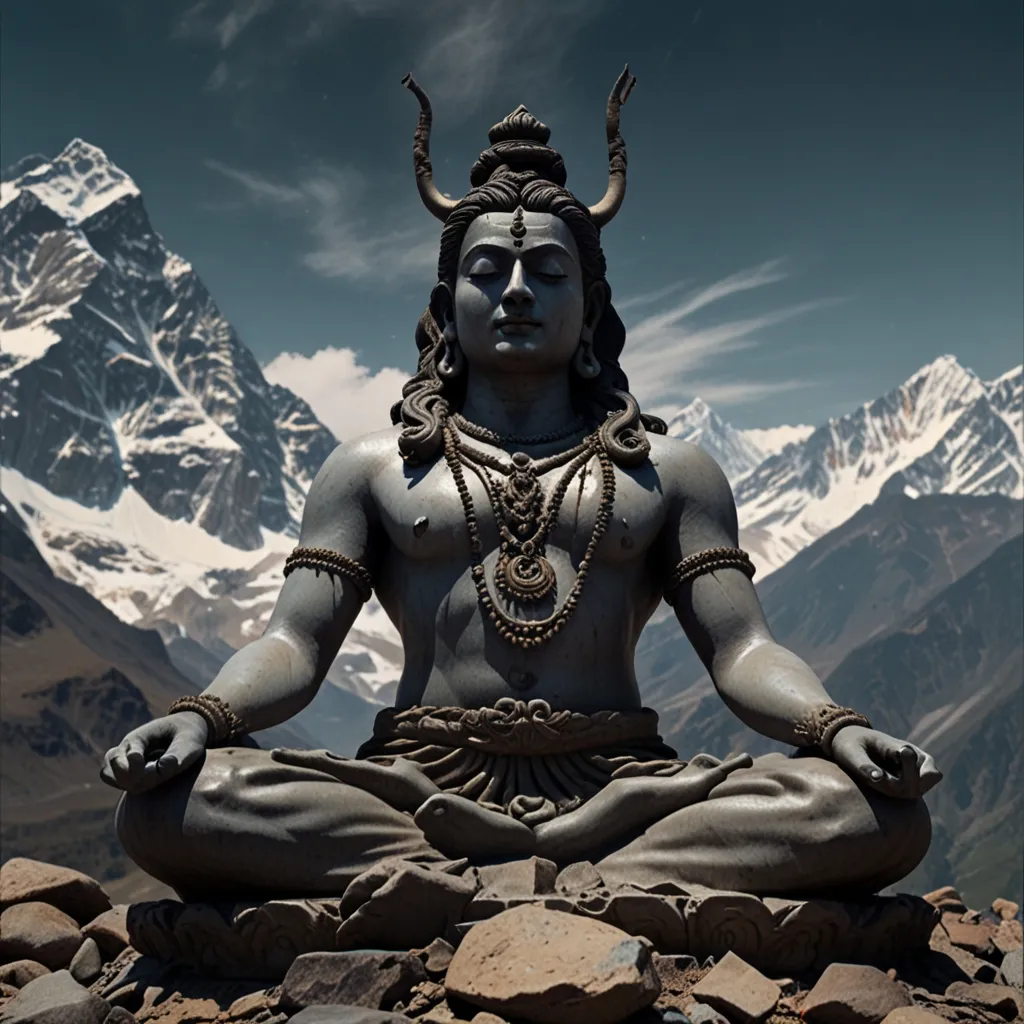As I delve into the ancient pages of the Garuda Purana, I am struck by the profound wisdom and life-changing lessons that this Hindu text offers. Here, I will explore seven of these transformative teachings, each one a beacon guiding us toward a more meaningful and virtuous life.
Karma and Consequences
The Garuda Purana is clear: our actions have consequences. This fundamental principle of karma is not just a moral guideline but a universal law. Every thought, word, and deed contributes to the intricate web of karma, shaping not only our current life but also our future existences. This idea is encapsulated in the words of the Bhagavad Gita, “As you sow, so shall you reap.”
This teaching encourages us to live mindfully, taking full responsibility for our choices. It’s a reminder that our lives are not a series of random events but are instead the culmination of our past actions. By understanding this, we can strive to make better choices, fostering a life of moral integrity and ethical conduct.
The Impermanence of Life
Life, as the Garuda Purana reminds us, is transient. This impermanence is a universal truth that applies to everything from the smallest particle to the vast expanse of the universe. It urges us to value our time and live purposefully, rather than getting entangled in the ephemeral nature of material possessions.
“Everything is transient and fleeting; nothing endures but change,” as the ancient Greek philosopher Heraclitus once said. This perspective helps us detach from the mundane and focus on spiritual growth, seeking lasting fulfillment rather than temporary pleasures.
The Importance of Righteous Living
The Garuda Purana lays out a clear path for righteous living, emphasizing the importance of ethical conduct in both personal and social contexts. It provides guidelines on how to lead a virtuous life, highlighting the importance of honesty, compassion, and self-discipline.
Righteous living is not just about following rules; it’s about cultivating a deep sense of morality that guides our interactions with others and with ourselves. As Mahatma Gandhi once said, “Be the change you wish to see in the world.” By living righteously, we contribute to a more harmonious and just society.
The Power of Truth
Truth is a supreme virtue in the Garuda Purana. The text encourages honesty in all aspects of life – thoughts, words, and deeds. This commitment to truth is seen as a path to spiritual liberation, freeing us from the burdens of deceit and dishonesty.
“Truth is the highest virtue, but higher still is truthful living,” as the Upanishads teach. Living truthfully builds trust, integrity, and a clear conscience, which are essential for personal and spiritual growth.
The Cycle of Rebirth
The concept of reincarnation is central to the Garuda Purana. It explains that the soul’s journey is continuous, with each life offering opportunities for growth and learning. This perspective broadens our understanding of existence, encouraging us to see life as a series of lessons rather than a single, isolated event.
As the Buddha said, “The mind is everything; what you think, you become.” Understanding the cycle of rebirth motivates us to live each life with purpose, striving to improve ourselves and our circumstances in each new incarnation.
The Value of Charity
Charitable acts are highly praised in the Garuda Purana. The text teaches that generosity not only benefits others but also purifies the giver’s soul. By giving selflessly, we break free from the cycle of selfish desires and cultivate a sense of compassion and empathy.
“Charity sees the need, not the cause,” as Saint Augustine noted. This perspective on charity reminds us that our actions can have a profound impact on others and on our own spiritual well-being.
The Significance of Last Rites
The Garuda Purana provides detailed information about death rituals, emphasizing their importance for the departed soul’s journey. These rituals are not just ceremonial practices but are believed to ease the transition of the soul into the afterlife.
“The soul is immortal, and its future is the future of the universe,” as Swami Vivekananda said. Understanding the significance of last rites offers comfort and guidance to the bereaved, helping them navigate the grieving process with a deeper sense of purpose and meaning.
A Comprehensive Guide to Life
These lessons from the Garuda Purana offer a comprehensive guide for living a meaningful life and preparing for what lies beyond. They remind us that our actions have consequences, that life is transient, and that living righteously and truthfully is essential.
As we reflect on these teachings, we are prompted to ask ourselves: How can we live more mindfully? How can we cultivate a deeper sense of morality and compassion? How can we prepare for the inevitable transition that awaits us all?
The answers to these questions lie within the pages of the Garuda Purana, waiting to be discovered and applied to our lives. By embracing these lessons, we can embark on a journey of personal growth, spiritual liberation, and a deeper understanding of the universe and our place within it.






